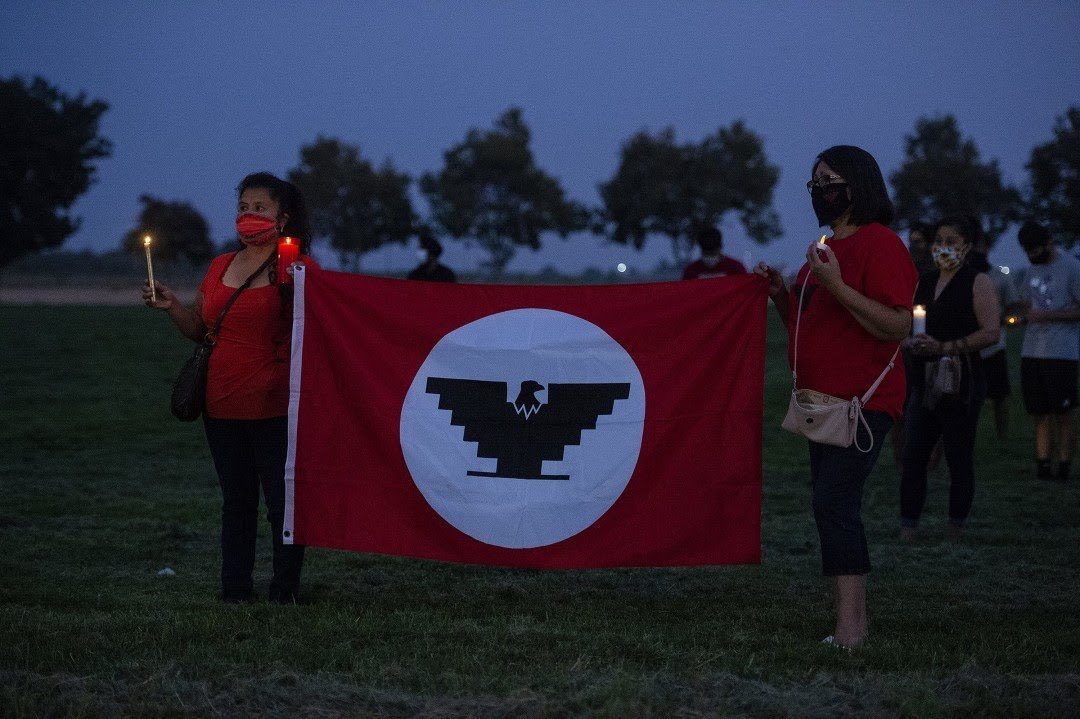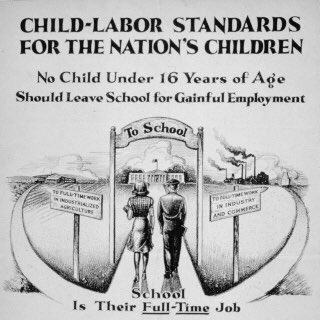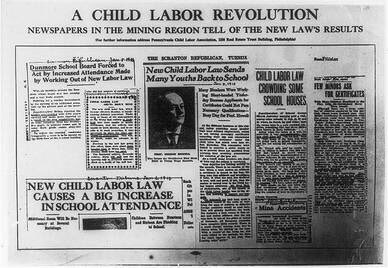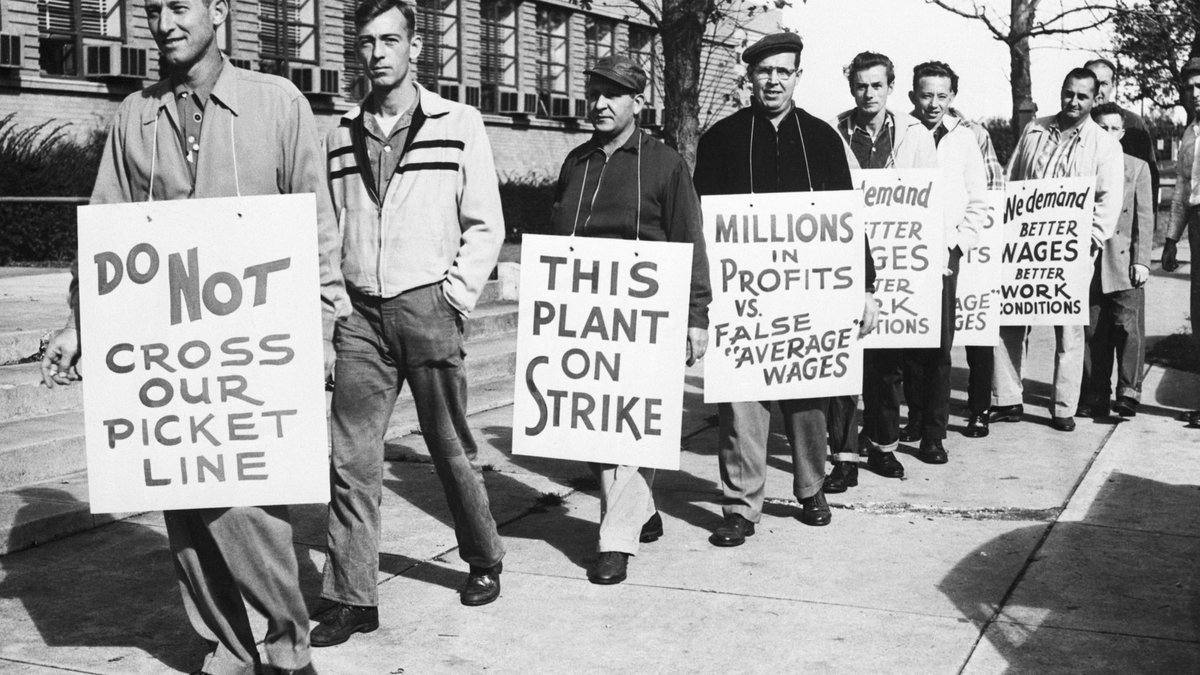
Thread: Ever think about the logistics of the food on your plate and the human costs of our food supply? #WeFeedYou
When it rains, workers either wait (unpaid) for the storm to lift, or go to work in the rain among slippery, muddy rows. If they’re paid a piece rate, the work is slower but the piece rate stays the same.
When you see workers jogging, that’s because of piece rate economics. The rows are slippery, and the crates are also heavier. Sometimes double the weight.
Some employers provide rain gear, most don’t. Gear slows down workers, but skilled workers like Patricia have adapted their skills to the conditions. (Average piece rate for CA parsley workers is $1.86-1.90 per crate of 60 bundles).
Many fruit trees, like these WA apple trees, are pruned when dormant in very cold weather. This worker is pruning in temperatures below 20° f, in the snow. Look closely— those ladders are more dangerous in icy temps with numb hands. 

Prez sent this vid from North East PA where he was pruning grapevines. The temp was 20°F, but w/the wind chill it felt like -7°. Workers like Prez work 8-9 hours per day, 6 or 7 days a week. #WeFeedYou
Rainy and cold weather can be grueling and dangerous, but the most lethal weather condition is heat. 2020 was a brutal year. Workers die of heat stress every year.
abc7.com/farmworkers-ex…
abc7.com/farmworkers-ex…
Heat kills farm workers.
Most states do not have heat protection laws requiring shade, cool water or rest breaks. Regardless, piece rates create a perverse incentive to work as fast as possible. This video shows a watermelon crew on a 98 degree morning.
Most states do not have heat protection laws requiring shade, cool water or rest breaks. Regardless, piece rates create a perverse incentive to work as fast as possible. This video shows a watermelon crew on a 98 degree morning.
Repetitive strain injuries don’t need much explanation. Charlie earns 75 cents per bucket. Of course this includes the time carrying and tallying buckets, and time not working is unpaid. How much does it cost Charlie to stand and stretch?
Most workers in the US are protected by laws like overtime protections and child labor laws. Not farmworkers!
They’ve been excluded from many federal laws since the Jim Crow era. You can read more about that in a previous thread below.)
They’ve been excluded from many federal laws since the Jim Crow era. You can read more about that in a previous thread below.)
https://twitter.com/ufwupdates/status/1289381633842278401
What surprising things have you previously learned from our feed? Is there a piece rate that really startled you?
Many consumers are really surprised about photos like this, when we share that high grade wine grapes only earn workers around $90 per ton.
Many consumers are really surprised about photos like this, when we share that high grade wine grapes only earn workers around $90 per ton.

Many barriers block the road to progress for farm workers. Most states don’t even give us the right to unionize or collectively bargain.
Want to help us fight? Sign up for email action alerts at the top of our website (confirm to opt in!) or donate here: ufw.org/canttelecommut…
Want to help us fight? Sign up for email action alerts at the top of our website (confirm to opt in!) or donate here: ufw.org/canttelecommut…
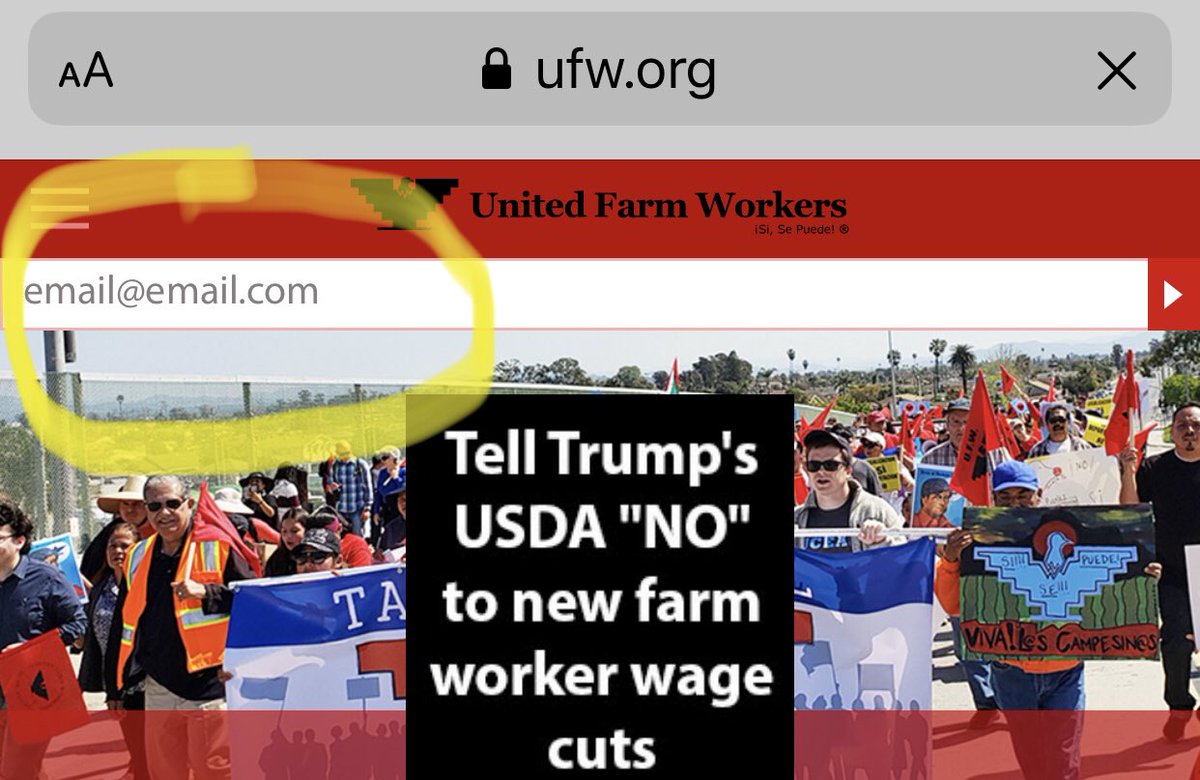
Signing up for email alerts feels intangible— but it’s a way for consumers show solidarity, and sending unified demands to your elected reps truly makes a difference. If you provide your address and zip code, the alerts will be customized to your region. ufw.org
Of course, one pressing need for us is the desperate need for a roadmap to citizenship for the “essential” people doing the sacred work of feeding you.
The @POTUS plan is great news, but a plan isn’t a victory. We need to organize to make it reality. desertsun.com/story/news/pol…
The @POTUS plan is great news, but a plan isn’t a victory. We need to organize to make it reality. desertsun.com/story/news/pol…
From coast to coast, millions of people are doing work like this, so you have food on the table. They’re raising children and volunteering and generally living lives just like yours— except their kids are terrified every day that Mom won’t come home from work. 

During huge (pre-COVID) worker community meetings last year, we talked about what a fair path forward would mean to people.
A stable secure workforce is pragmatic for the ag industry labor shortage, but it’s also a pretty cut and dry issue for this 8 year old kid.
A stable secure workforce is pragmatic for the ag industry labor shortage, but it’s also a pretty cut and dry issue for this 8 year old kid.

• • •
Missing some Tweet in this thread? You can try to
force a refresh




